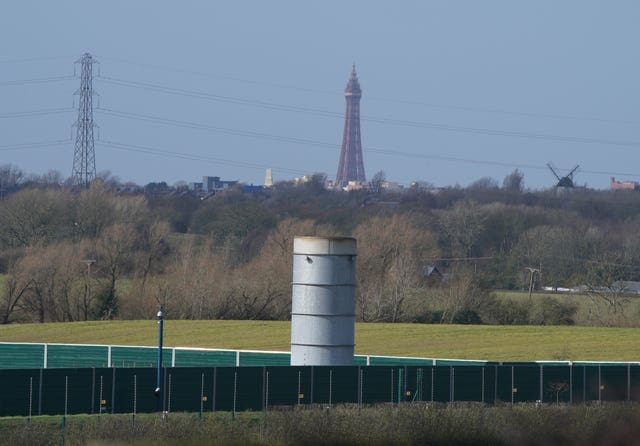
Shelagh Fogarty 1pm - 4pm
1 April 2022, 10:34

Regulators have lifted an order requiring Cuadrilla to seal the UK’s only shale wells by the end of June.
The UK’s only shale gas wells will not be sealed up at the end of June after regulators lifted an order for them to be capped.
Fracking firm Cuadrilla had been under instruction to plug its wells in Lancashire by the end of June 2022.
But the North Sea Transition Authority (NSTA) said the firm now had until the end of June 2023 to evaluate options for the Preston New Road and Elswick sites.
The move comes ahead of the publication of the Government’s delayed energy strategy, with Boris Johnson under pressure from Tory MPs to end a moratorium on fracking.

Cuadrilla chief executive Francis Egan said: “I would like to thank the Prime Minister and the Business Secretary for seeing the light and realising – just in time – how absurd it would have been to force us to pour concrete down Britain’s only two viable shale gas wells in the middle of an energy crisis.
“But this suspension will have a cul-de-sac ending unless we now reverse the moratorium preventing us from using the wells (and others like them) to get shale gas out of the ground and flowing into British households.”
The NSTA said Cuadrilla applied for consent to keep its wells on March 28.
“The North Sea Transition Authority has looked carefully at this application, alongside recent developments, and agreed to withdraw the requirement to decommission the wells by the end of June,” the regulator said.
“Cuadrilla now have until the end of June next year to evaluate options for the Preston New Road and Elswick sites.
“If no credible re-use plans are in place by then, the North Sea Transition Authority expects to reimpose decommissioning requirements.”
The energy security strategy promised by Mr Johnson has been held up by Cabinet in-fighting but is expected to be published in early April.
One of the issues being considered is the future of fracking and whether the moratorium should remain in place, with Downing Street insisting that the situation in Ukraine meant considering all options to increase energy independence.
A No 10 spokesman said: “Our general position on fracking has not changed. The pause on the development of shale remains in place.
“But it is of course right that we look at all of our options which will inform the energy security strategy.”
Shadow climate and net zero secretary Ed Miliband said: “This is an appalling decision by the regulator, made after pressure from Government.
“This has nothing to do with the energy needs of the country and everything to do with the Conservatives bowing to their backbenchers.”
A Greenpeace UK spokesperson said: “Trying to restart fracking now would only mean wasting more time when we have little.
“It will take many years to develop and if it ever gets produced, it will be sold to the highest bidder on the international market, with no impact on our energy bills.
“If the UK and Europe want to end their dependence on Russian gas, the quickest way to do that is by insulating homes, installing heat pumps and boosting renewables. ”
Another contentious issue which the strategy may address is whether more onshore wind farms should be permitted to generate clean electricity.
The Prime Minister appeared to limit his support to offshore development when he appeared before MPs on Wednesday.
“Renewables are fantastic: offshore wind – and I stress offshore wind – I think has massive potential,” he said.
Mr Johnson was meeting leaders from the wind industry on Thursday.
The Prime Minister’s official spokesman said: “I can’t get into the detail of what will or won’t feature in the strategy itself.
“In terms of onshore wind, it remains an important part of the energy mix… it accounts for around a quarter of installed renewable capacity in the UK.
“We have committed to a sustained increase of locally supported onshore wind alongside other renewables such as solar and offshore in the 2020s and beyond.”
The Government has faced calls from campaigners to remove planning restrictions to make it easier to create new onshore wind farms but Mr Johnson would face political difficulties getting his Cabinet and Tory MPs to support such a move.